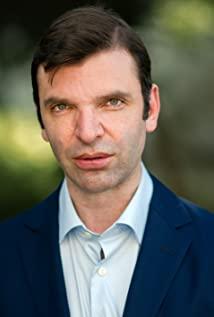Originally published in "Beijing Youth Daily" "Beijing Youth Art Review" on January 13, 2017.
If the most beloved filmmakers at the Cannes Film Festival in recent years are selected, the standard bearer of the "New Wave of Romanian Cinema" will undoubtedly be on the list. On the same stage in Cannes, he won the Best Picture Award in 2007 with "April Three Weeks and Two Days". In 2012, he won the Best Screenplay Award for "Beyond the Mountain". In 2016, he won the Best Director with "Graduation Exam". prize.
The 10 years of love in Cannes has witnessed more than Mengji's "almighty". The three films all involve young women, but compared to the female college student in "April Three Weeks and Two Days" and her girlfriend who had a secret abortion, the nun in "Beyond the Mountain" and her exorcised girlfriend to death, "Graduation" The core characters of the story of "Huai Kao" are no longer the poor sisters of the closed and conservative era or regional environment, clamped thoughts and kidnapped, but a pair of father and daughter who are in line with the current situation. However, although the social atmosphere in Romania has become quite open, the future life of daughter Eliza, who is about to usher in the graduation exam, is the only way out of the country in the eyes of father Romeo, even if the daughter is almost raped on the eve of the exam. He still has to do everything he can, and even give up the principles of life that he has adhered to for many years, to ensure that his daughter can get the scores needed to study abroad after the exam.
Intertwined with his father's wholehearted but paradoxical love for his daughter is Romeo's midlife crisis. The source of the crisis is precisely the principles he has learned in dealing with people abroad, which does not apply to the social network weaved by human feelings. The reason for hoping that Eliza went to the UK was because he did not want to accept the democratic and equal concepts instilled by himself and his wife from an early age. Daughter, repeat the mistakes of his life. But the irony is that what he did on his daughter's "promotion" road turned his usual "teaching by words and deeds" into a joke. The ridiculousness contained in the shaky documentary image of the film is just like the other two works by Mongi that won the Cannes Grand Prix, but his scrutiny of the environment in which he is in a calm blend of active reconciliation.
Father’s troubles: looking at the glamorous democratic shell
In 2009, the "Golden Age Tales" co-directed by Mengji and several domestic colleagues, and six short films involving all walks of life in Romania, were all set before the dramatic changes in Eastern Europe in 1989. The first four stories were triggered by leadership inspections and material shortages that the Romanian people were accustomed to. They aimed to ridicule the rigidity of the bureaucratic system in a special era with a ridiculous plot. The latter two stories tell love, ordinary young people in Romania or China Young people, in order to maintain the dignity of love, try to exploit physical loopholes or simply oppose the anti-antibody system, the law will jump out "in time" to impose sanctions.
The scripts of the six short films were all written by Mengji. Occurring in 1987, "April Three Weeks and Two Days" involving class love, illegal abortion, and secret trading was originally a chapter in this collection movie, probably because the subject matter is relatively heavy, and the characters involved in the case All escaped the punishment of the law, and Mengji developed it into an independent feature film. And he and his colleagues filmed "Golden Age Tales", of course, not for collective humor to remember the past.
The film co-authored the Romanian national anthem between the fourth and fifth stories "Fat Bomb" and "Bottled Love", inserting a piece of news material from a national conference held when Ceausescu was in power, usually ending in a film The cast and crew subtitles that appeared at that time were also typed out line by line. Although this has strengthened the contrast between the two parts, it also shows that Ceausescu's dictatorship has ended with history, but his influence will not die along with the body. Romeo in the "Graduation Exam" is a representative who is troubled or hurt by this kind of influence.
Romeo returned to China with his wife in 1991, because he thought that the spirit of the country is no longer what it used to be. Unexpectedly, the enthusiasm of the husband and wife will run into a wall everywhere. Romania seems to have replaced the outer shell of the democratic world, and what fills the inside is still the relationship and attachment. Favor trading, relying on personal ability to break into a world is pure wishful thinking. His wife bent over to become an administrator of the campus library, and her spirits gradually became depressed. Romeo's surgery to reject the red envelope meant that she took the initiative to break the "trust agreement" that was "signed" semi-privately and semi-publicly between doctors and patients. The window glass of his house was inexplicably broken in the opening, and as the plot developed, his car was repeatedly manipulated. The film did not explain it directly until the end, but it pointed to a certain force that repelled him, only using darkness. The trick is not clear, like invisible dense steel needles, piercing his emotions and life bit by bit, as well as his belief in fairness when he opened his eyes abroad.
The obsession to go abroad: the moon in Western Europe is rounder than Eastern Europe
Going abroad is a recurring key word in Menggi’s films, and its specific object refers to Western European countries represented by the United Kingdom and Germany in comparison to Eastern Europe where Romania is located. His feature film debut in 2000, "Western ", the English film title typed on the screen of two juxtaposed railroad tracks with obvious contrast between one dark and one bright is exactly the "occident" that can also be translated into Western European countries.
Considering that Romania joined NATO in 2004 and became a member of the European Union in 2007, the foreign world in the "West", the Romanian people seem to be an imaginary utopia, because few people can come in person, increasing their wishful thinking. The beautiful imagination of people, when people with certain abilities or means, such as Romeo in the "Graduation Exam", have a relationship with him, and the full affirmation is actually due to the "magnifying glass" implanted in the heart. By the time of the story, it was set in "Beyond the Mountain" around 2005. Because the visa can be easily obtained, this kind of "magnifying glass" has been installed on the ordinary people. I still hope to live with the nun in Germany.
The "Graduation Exam" is widely used in Romania with the euro, which shows that citizens can travel to and from Western European countries freely. Against this background, Romeo stubbornly made Eliza to study in the UK, and even after she suffered misfortune, she confessed her regrets to return to China through her own experience, and described her blueprint for a comfortable life in the UK. To some extent, it may be a delusion. Romeo’s increasing frustration after returning home is attributed to the “changing the soup without changing the medicine” of the environment, and he has never found the cause in himself.
This middle-aged man with out-of-shape body and gray hair, the focus of his life outside of work is to revolve around the old mother, wife, lover and daughter, and to build a relationship with every woman. He handles the relationship awkwardly and passively responds to each other. And the unexpected event. The constant ringing of the phone urges him to take action, and silence does not prevent or delay the advent of large and small events. Eliza’s misfortune actually provided him with an excuse for caring for his daughter without a second thought. He spent all his energy on running for the future of his daughter. It had nothing to do with "priority", but a disguised refusal to solve other problems, just like the capture of Berlin in 2013. The Romanian film "Children's Posture" at the Golden Bear Award at the Film Festival, the rich second generation's driving accident was initially seen by the mother as a good opportunity to improve the relationship between mother and child. She used this as a shield to conceal many contradictions.
Daughter's choice: there is no standard answer to whether to stay
Compared with Romeo's resolute attitude, the other characters in "Graduation Exam", including Eliza, do not think she must go to the UK to study. His wife questioned that he had bought officials and invigilators in exchange of benefits, which made their daughter's education meaningless. Even if Eliza succeeded in going to the UK, she would not fully enjoy the air elsewhere. Mother and Faxiao feel that it is not necessary to study in China. The current environment in Britain is not necessarily better than Romania. Eliza is worried that friendship (and love) will leave her. Romeo's response is that the daughter of extraordinary means can understand and accept in extraordinary times, Britain is always better than Romania, and can make more friends.
However, as the mother fainted and the extramarital affair was exposed, the father-daughter relationship was slowly reversed. Eliza even "coerced" Romeo, if he let his marriage hit the rocks and other issues stranded, she would not complete the exam. In this way, Mengji raised doubts about Romeo's behavior. The road he paved for Eliza was not necessarily a broad road suitable for her.
It is true that the small town environment the film focuses on is much more civilized than the Romanian capital Bucharest in "April Three Weeks and Two Days" or the town where the monastery in "Beyond the Mountain" is located, but an image of Romeo tracking the suspect late at night is still People are nervous and depressed. However, to leave their homes because of this is obviously an evasive strategy. At the end of the film, Eliza told Romeo, who came to her graduation ceremony, that after the test bell rang, she touched the invigilator with tears and extended the answering time. Romeo was silent because he had previously asked his lover, who was an invigilator, to find a way to help Elizardo set aside some time for answering questions.
However, whether this is the success of the previous generation's favor or the victory of the next generation's self-solving, the film does not clearly indicate whether Eliza will leave or stay in the end, and it is also not clear. But compared to the closing shots of "April Three Weeks and Two Days" where a female college student silently looks at the audience and "Beyond the Mountain" a cloud of dirty water splashes on the windshield in front of the car, "Graduation Exam" uses Eliza to be happy with her classmates. The graduation photo (Romeo's mirror) is taken as the ending, and the picture is bright and moving. Mengji proactively extended a hand of reconciliation to the land he couldn't live without. (Mei Sheng)
View more about Graduation reviews











